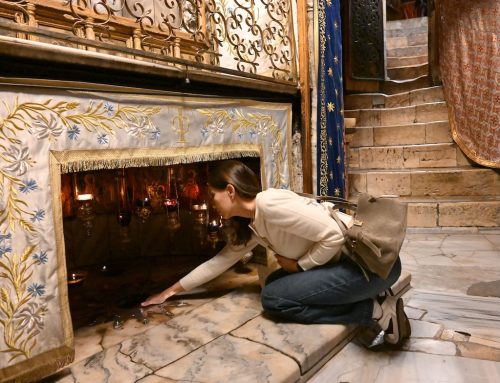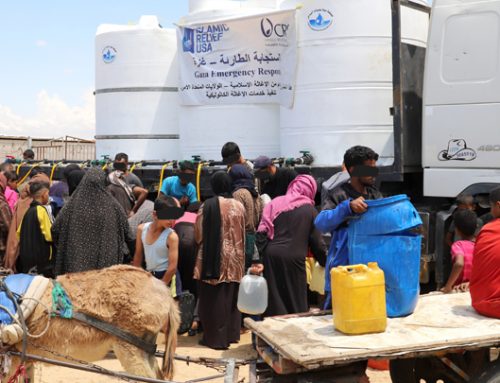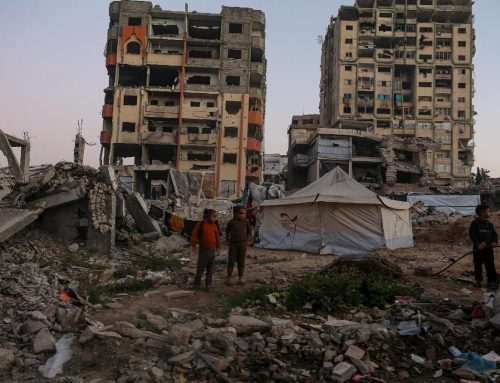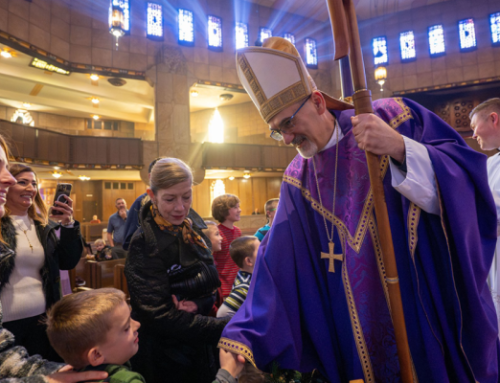Christians in the Mideast continue to need support, says a bishop who recently participated in the Assembly of Catholic Ordinaries in the Holy Land.
Christians in the Mideast continue to need support, says a bishop who recently participated in the Assembly of Catholic Ordinaries in the Holy Land.
From Jan. 14-16, Auxiliary Bishop Pierre Bürcher of Lausanne, a member of the Coordination of Bishops’ Conferences in Support of the Holy Land, visited the region. The prelate, 60, shared his impressions of the trip with ZENIT.
Q: You have just returned from a trip to the Holy Land. How do you see the situation of Christians in that region?
Bishop Bürcher: This pilgrimage took me to Jerusalem, Bethlehem and Amman, with bishops representing the episcopal conferences of the United States, Canada and several countries of Western Europe.
As every year, we were invited to take part in the Assembly of the Ordinaries of the Holy Land to express our solidarity with the Christians who at present live in a situation that has deteriorated dramatically.
The majority of the Christians of the Holy Land are Palestinians and, as all Palestinians, they are in a situation of occupation. Very numerous among them are those who are obliged to remain unemployed, above all in the area of tourism and pilgrimages.
All Palestinians and Israelis — whether Christians, Jews or Muslims — feel the need for peace and justice and the recent Palestinian elections must contribute urgently to this in a nonviolent way.
Q: In your opinion, what are the most urgent difficulties and problems?
Bishop Bürcher: Because of the situation just described, the temptation to emigrate is great. Despair can often win because of the attacks and threat of bombings;
The same must happen with the illegal occupation of the Palestinian Territories. Otherwise, the cycle of violence will never end.
Bethlehem and Gaza are two regions that are very traumatized at present. In those places, the Israeli wall under construction divides peoples, families and properties. Therefore, it has been declared illegal. And this wall resolves nothing; on the contrary, it does the opposite.
Q: When there is talk of Israel, Israelis and Palestinians are mentioned, but Christians are forgotten. What does there future look like? Will they be able to live with two states: Israel and Palestine?
Bishop Bürcher: It must be noted that there are Israelis and Palestinians who are Christians, but they are a minority. Christians have felt very deeply, for example, that they were not mentioned at any moment in the Geneva declaration.
Christians may live in the two states. In fact, despite all the difficulties, at present they live both in Israel as well as Palestine.
However, they must be respected as citizens of full right, given that they have lived in the Holy Land from the beginning.
They have a right to the concrete exercise of their religion, in the same way as the Jews and Muslims. Jerusalem must remain as the city of the three monotheist religions.
Pope Benedict XVI said recently: “Commitment to truth is the soul of justice. & With almost exemplary evidence, these considerations seem to me to be applicable to that neurological point of the world scene which is the Holy Land. In it the state of Israel must be able to subsist peacefully according to the norms of international law; in it, likewise, the Palestinian people must be able to develop serenely its own democratic institutions for a free and prosperous future.”
Q: Personally, what has impressed you most about the Holy Land?
Bishop Bürcher: Our visit to Bethlehem. It was a spiritless day. My impression was even more reinforced when I looked at the wall, which they say [is] for security, which surrounds the city.
It was the first time I saw it, and I was very scandalized seeing this construction which is really a wall of shame.
What a contrast with the Mass we had celebrated in the Basilica of the Nativity! I was impressed by the participation and recollection of the faithful.
At a meeting, young people shared with us their sufferings and I very much liked the fact that at the same time they saw many signs of hope for the two peoples. Sooner or later reconciliation will take place. A new era must come.
Q: It was the first time that the bishops participating in this meeting met with the king of Jordan. Can you tell us something about this meeting?
Bishop Bürcher: This year, visits were planned with Palestinian President Abu Mazen, another with Prime Minister Ariel Sharon, as well as, indeed, for the first time, with the king of Jordan.
The latter received us with great respect. He spoke to us about the famous declaration of Amman, which proposed interreligious dialogue and is still too little-known.
The impact of our meeting with the king of Jordan was very strong among the local population. The media gave ample coverage to the event.
Q: Have the bishops’ contacts with Israeli and Palestinian political representatives led to concrete measures?
Bishop Bürcher: Because of the present situation, these meetings could not be held due to Sharon’s hospitalization. The fact remains, however, that the impact of our passage through Jordan has also reached Palestine, Israel and beyond.
Q: In your opinion, what could be done at this time to give concrete help to Christians of the Holy Land?
Bishop Bürcher: I see, concretely, three objectives. First, not to ignore their dramatic situation, to pray incessantly for peace and justice in the Holy Land.
Second, not to be afraid to organize pilgrimages to the Holy Land.
Finally, to manifest all our Christian solidarity to them in every possible way. The present moment is a challenge.
Q: Muslims are obliged to make a pilgrimage. Should Christians also be obliged to make a trip to visit the places where Jesus lived? Would this be a help for their faith?
Bishop Bürcher: Of course. I respond affirmatively with all conviction to your two questions.
Muslims themselves took the example from Christians who, from the first centuries, went on pilgrimage to the holy sites. Their faith was confirmed for the edification of all those who succeeded them in the course of the centuries.
I would like to specify, however, that it is not just about visiting the holy sites, but above all visiting the living stones that today are the Christian communities present in the Holy Land. They await our visit and our testimony.
Our faith cannot but be consolidated. I know many people who have been edified thanks to a pilgrimage to the Holy Land. It is a grace that I wish for every baptized person.





